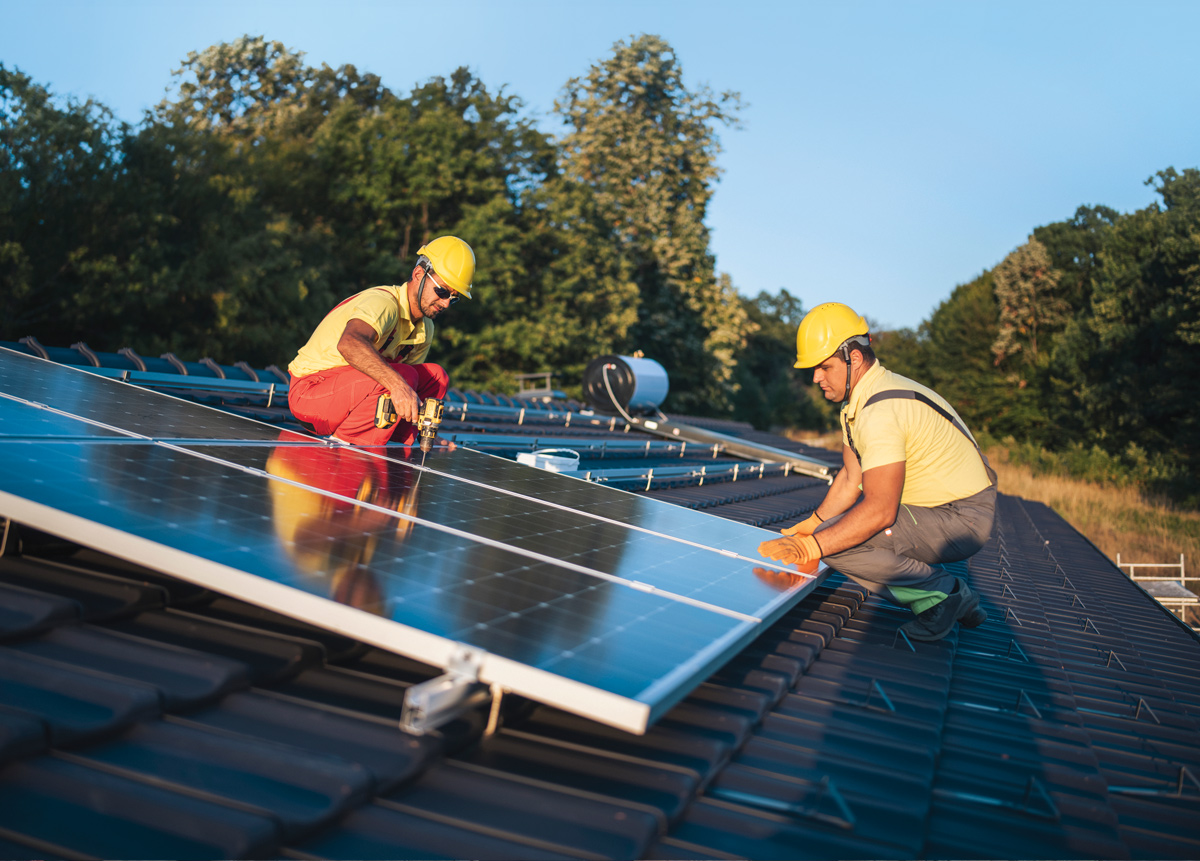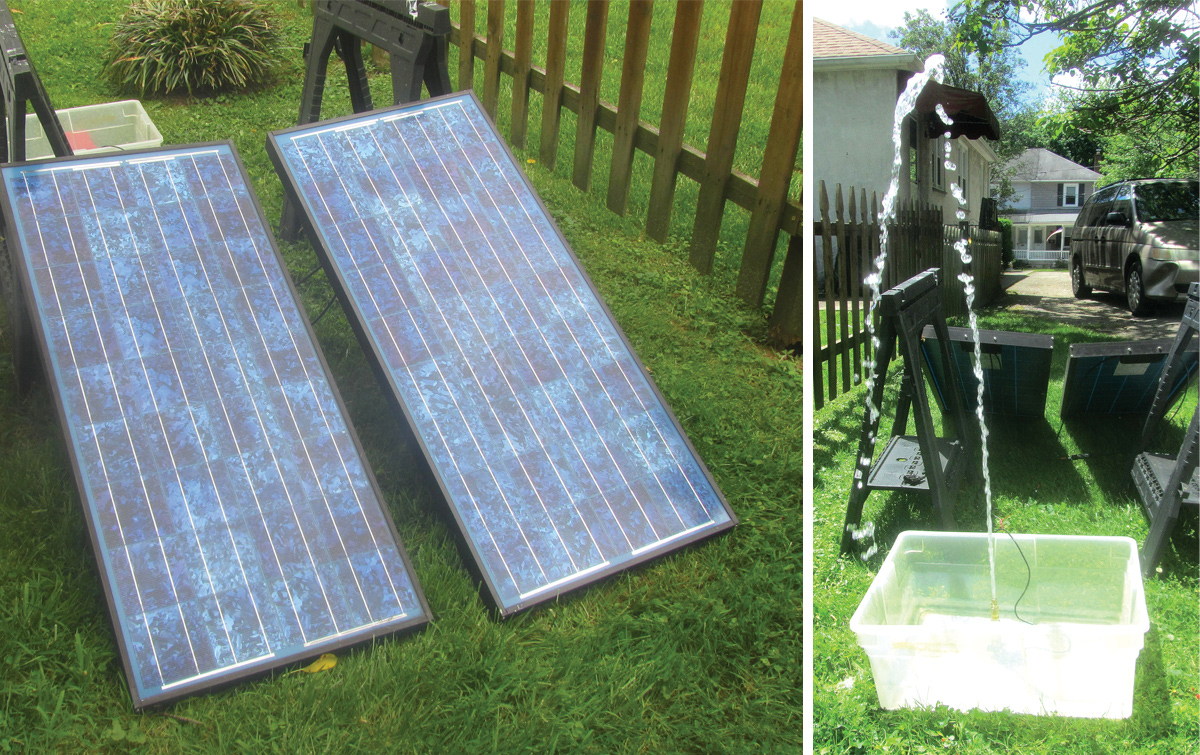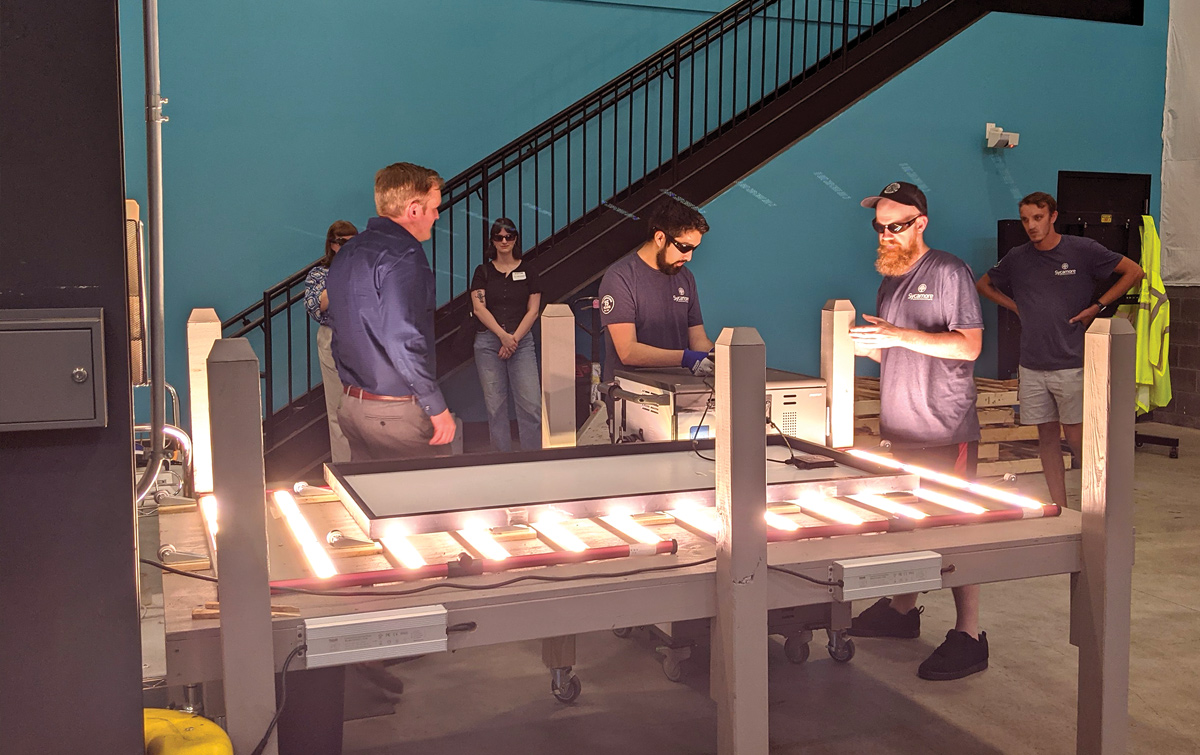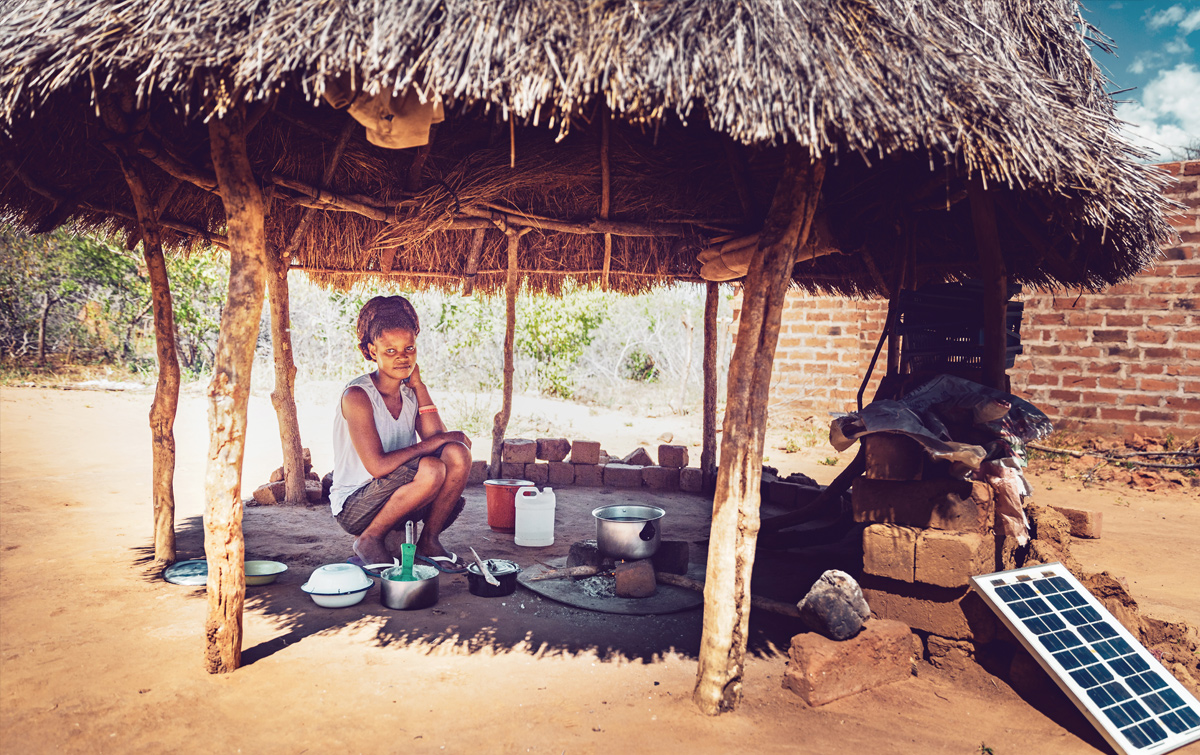By Liz Robinson, Executive Director, Philadelphia Solar Energy Association October 2, 2025

Solar panel installation. © ArtistGNDphotography
Solar system recycling is now a rapidly growing business, working to keep pace with the growth of the solar industry. The number of solar recycling companies across the U.S. has been increasing exponentially in the last several years. The map on DOE’s website includes only a fraction of the companies now recycling solar systems.
Ideally, solar recycling facilities would also be set up to upcycle—that is, test the panels and move the good ones on to second-life projects. Many owners of solar PV systems that are at least 15 years old have decided to replace these systems to take advantage of the federal tax credits before they’re gone, and because newer equipment is so much more efficient. Most of these old solar panels can be reused or upcycled. There are many great projects out there involving upcycling and the reuse of solar panels.
Solar Kits for Schools
In Pennsylvania, the Philadelphia Solar Energy Association (PSEA) and Drexel University’s College of Engineering are collaborating to expand solar education in area middle and high schools through experiential learning with real solar photovoltaic (PV) panels, using diagnostic and other equipment and materials, and lesson plans.
What distinguishes PSEA’s Solar Kit is that it is made from an actual, repurposed solar PV panel that provided electricity to a resident for 20 years but still has years of useful life remaining. PSEA worked with Drexel Engineering faculty and students to test the panels, design the kit, and develop the lesson plans. PSEA will also be collaborating with George Washington Carver Engineering High School to build the kits.
Students will learn the fundamentals of electricity, how solar PV actually works, and how to harness the sun to do work, like pump water. This is accomplished through immersive, hands-on lessons. The kits also offer tremendous opportunities for ongoing free inquiry beyond the provided curriculum.

(Left) Repurposed solar panels from a PSEA Solar Kit. (Right) Pumping water from power of upcycled
solar panels. © Ron Celentano, PSEA Technical Director
Upcycling/Recycling Operation
PSEA played a pivotal role in encouraging Sycamore International, a very successful electronics recycling company based in West Grove, PA, to expand its operations into the emerging field of solar recycling.
At Sycamore’s recycling facility, solar panels, inverters, racking, and balance-of-system components are received, assessed, and processed. Every item is evaluated for reuse potential. Photovoltaic (PV) panels undergo performance testing, and those demonstrating greater than 85% of their original nameplate efficiency are earmarked for reuse. These panels are further inspected for wiring integrity, tested for resistance and open-circuit voltage, and repaired or re-terminated with new connectors where necessary.
Solar Panel testing at Sycamore International
Sycamore focuses on refurbishing equipment for reuse because it is more energy and capital-efficient to reuse materials than it is to recycle materials. Equipment deemed suitable for reuse is refurbished, cleaned, and prepared for resale in both domestic and international markets. Panels or components that do not meet reuse standards are separated to be responsibly dismantled and sorted by material category for downstream recycling.
Sycamore partners with various certified processors and refiners to maximize material recovery through mechanical, thermal, and chemical processes. Aluminum, glass, metallurgical-grade silicon, copper, silver, tin, and trace lead from legacy solder are efficiently extracted, supporting closed-loop recycling for reintegration into the manufacturing supply chain.
Through this initiative, Sycamore International is building a sustainable end-of-life program for solar equipment while promoting circular economy principles and maximizing resource recovery.
There is growing demand for second-life solar panels from the U.S., particularly in many African nations and other regions across the Global South. These markets are often underserved by traditional energy infrastructure but are rapidly embracing distributed solar as a cost-effective solution for electrification.

Solar panel testing. © Ron Celentano, PSEA Technical Director
Tested and refurbished panels offer a compelling value proposition, enabling schools, clinics, farms, and small businesses to access affordable, reliable energy.
As demonstrated by Sycamore’s new program, this emerging industry will play a vital role in delivering quality-assured, pre-owned solar equipment that supports energy access, economic development, and environmental stewardship on a global scale.
Power Up Gambia, a Philadelphia, PA-based nonprofit, has been donating and installing solar systems on hospitals in Gambia, West Africa, for decades. Many rural hospitals and clinics in Gambia have had to rely on diesel generators for electricity, a very expensive, polluting, and not always reliable source of power.
Low-cost, quality repurposed solar modules allow the installation of an inexpensive power source to run vaccine refrigerators, lights, lab equipment, and oxygen concentrators.
In addition, the sale of repurposed modules in the rural regions allows small farmers to afford water pumping systems—something of great value in a country with a 7-month-long dry season.
Repurposed modules from the USA are often of better quality and lower price than new but inferior quality panels that often show up in the African market. This helps build the solar industry in-country and disseminates knowledge into the rural areas where small solar projects have significant impact.
Cameroon and many other African countries are also providing growing markets for repurposed solar panels.

Solar panel usage in Africa. © GCShutter
Solar Panels for Ukraine
Andy Lenec and many volunteers from Boulder, Colorado, have sent more than 100 solar panels to Ukraine since Russia invaded in February of 2022. Russia has systematically targeted energy infrastructure, including nuclear plants, to inflict power outages and economic damage on Ukraine.
Volunteers of all ages connect portable car chargers to used solar panels, creating solar-powered USB chargers to send to Ukrainians who face unreliable electricity and power outages due to the ongoing war with Russia. With these devices, Ukrainians can charge their mobile devices and stay connected with loved ones, and receive emergency alerts.
The son of Ukrainian political refugees, Lenec grew up entrenched in Ukrainian culture and served in the Peace Corps in Ukraine. He uses his strong relationships with people living in Ukraine to effectively distribute aid. “It’s my duty to support Ukraine,” Lenec said. “But it’s the duty of every human being also to support a country that is fighting a proxy war for democracy, for freedom, for self-determination.”
The technical process of converting the solar panels is only one part of the work. Many of the volunteers spend most of their time painting the backs of the panels with colorful drawings and messages of support, in English and Ukrainian.
The project started out upcycling used solar panels, but transitioned to smaller, new panels as demand grew. Solar system recycling continues to be a fast-growing need across the U.S—and several companies are making great headways to upcycle and reuse solar panels to create a more circular economy.
About the Author
Liz Robinson is the Executive Director of the Philadelphia Solar Energy Association (PSEA), a nonprofit dedicated to expanding solar in PA. Prior to coming to PSEA, Liz founded and directed the Energy Coordinating Agency (ECA) and co-founded and directed the Keystone Energy Efficiency Alliance (KEEA) the energy efficiency trade association for Pennsylvania and New Jersey.




For Liz Robinson – I’m a retired Swarthmore engineering professor who happens to own a pair of never-used 250W 24V solar panels that I need to de-accession on account of selling our home of 50 years in Wallingford and moving to Acts Lima Estates in Media.
Please let me know where I might bring them to PSEA for upcycling before the end of this calendar year. I’ve also got a 24V 300W sinewave inverter and and a nice battery rack and cable set for 8 Concorde 6V batteries (recently scrapped) after 15 years of successful service as backup power for our FIOS, home computers and high efficiency gas-fired hydronic heating & domestic hot water boiler.
Thanks for your PSEA work!